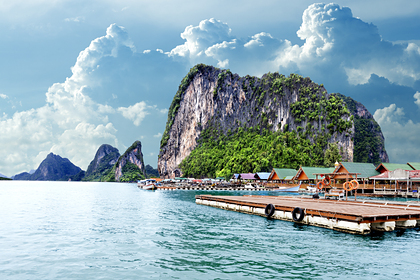Tourists from Russia: to enter Phuket, you will need to pass PCR tests for 18 thousand rubles 
A tourist from Russia decided to go to Phuket to frightening travelers about the rules of entry and revealed the truth about the peculiarities of rest at the resort. She shared her experience and recommendations with the portal “Subtleties of Tourism”.
First of all, the rested Russian woman recalled that currently only Russians vaccinated against the coronavirus can get to Phuket. This will also require a permit to enter Thailand Pas with a QR code issued on a special website, a certificate of vaccination, a SHA + hotel reservation, travel insurance with coverage of at least $ 50,000 (about 3.8 million rubles) and confirmation of payment for PCR tests upon arrival.
“It is advised to fill out the questionnaire seven days before departure, we received an answer two days later. PCR tests need to be paid for in advance, there are two of them, plus one more is needed to board the plane, it can be taken in any of our clinics. At the moment, the total cost of the three tests is 18.2 thousand rubles per person, “the girl advised.
According to the Russian woman, there are some restrictions at the resort, for example, the hotel staff wears masks, and the allowed number of tourists on excursions is also strictly regulated.
“But no fanatical mask regime or unnecessary temperature measurements. It seems that life here is back on track. There are a lot of tourists, our compatriots are a little less than before, but also a lot, ”the traveler noted.
In addition, the tourist called the rest of the recreation conditions, such as food, the number of restaurants and the state of the beaches, ideal. A tour for two for 12 days with flight and meals based on breakfasts cost 149 thousand rubles. “Definitely fiddling with documents was worth it, and even money for tests is not a pity,” the Russian woman believes.
Earlier in November, Russian tourists vacationing in Pattaya described the real situation at a popular Thai resort after the opening of the borders. It was noted that despite the closure of a number of catering facilities due to the COVID-19 pandemic, numerous restaurants, cafes, shops and markets operate as usual.
.